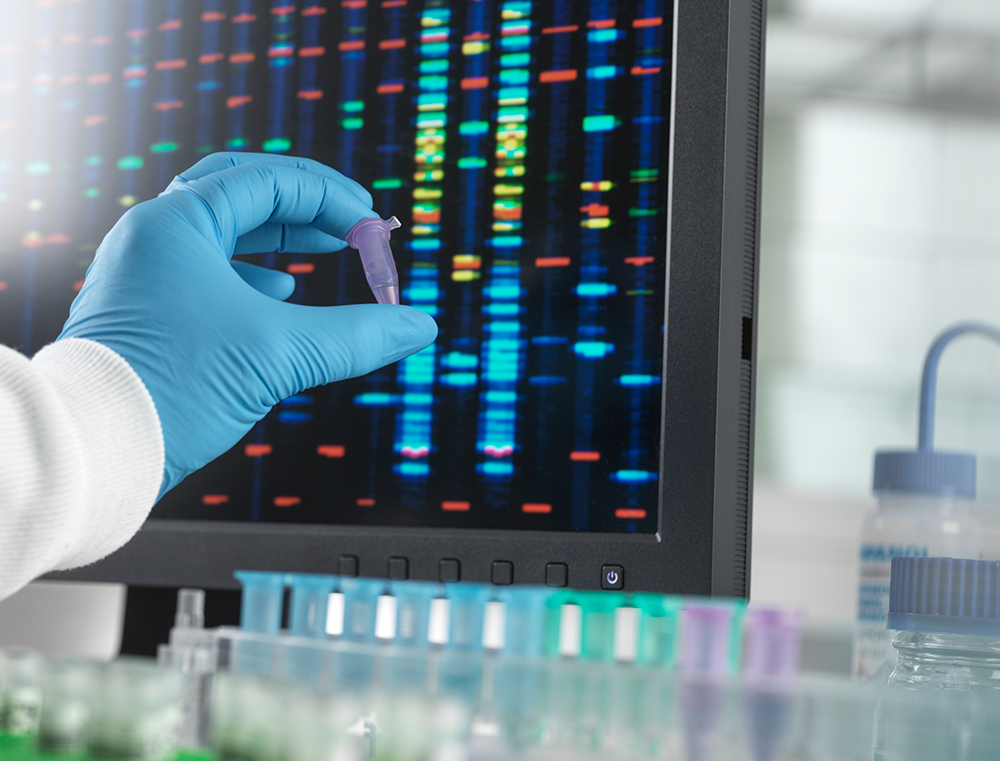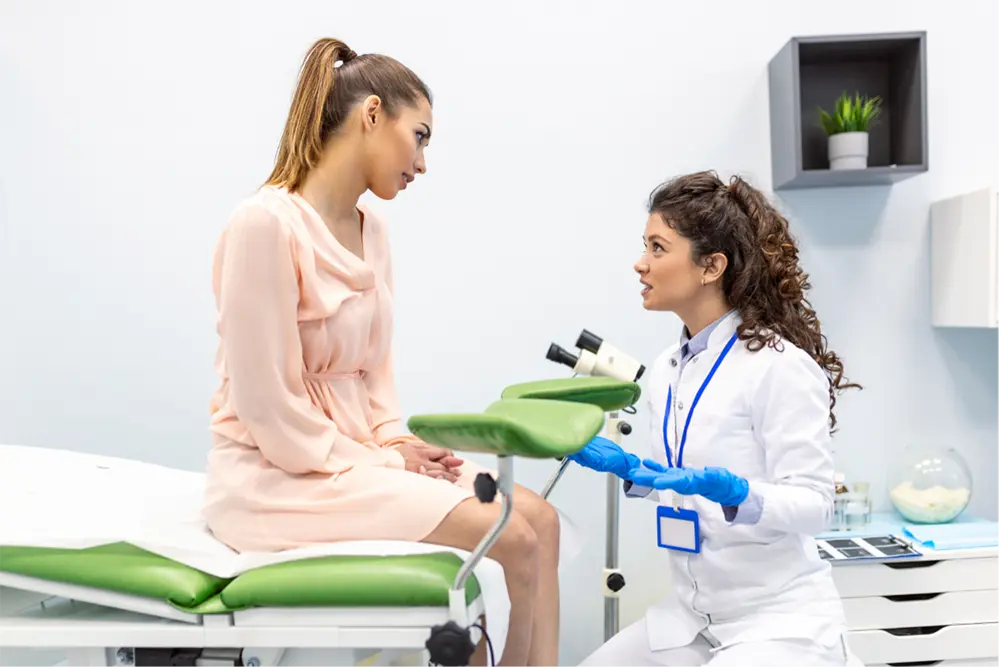Biomarkers are proteins, hormones, or pieces of DNA that can be released by cancer cells or by your body in response to cancer, which may be tested for. Biomarker testing results along with your cancer stage and overall health, will help your provider create a personalized treatment plan.
What is comprehensive biomarker testing?
Comprehensive biomarker testing looks for genetic changes and proteins in the genes associated with lung cancer. Biomarker testing may be done with a tissue biopsy or liquid biopsy (blood draw). Samples will be sent to a laboratory for analysis and may take several weeks to assess. Test results will provide a “tumor profile” that can help your doctor better understand your tumor, and which treatments you may be a candidate for. If certain biomarkers are present, there may be specific treatments that can be used.
Lung cancer biomarkers are primarily used for the diagnosis and treatment of non-small cell lung cancer (NSCLC). Testing shows the presence of specific proteins and mutations in that tumor. These mutations are usually not inherited; they are changes that have occurred over time, perhaps due to environmental factors. In some cases, there may be no clear-cut cause.
There are two main types of lung cancer biomarkers—mutations that promote the growth of cancer cells and immune response biomarkers that predict how well your cancer may respond to immunotherapy (treatment that triggers an individual’s immune system to fight cancer).
If you have non-small cell lung cancer, the most common biomarker detected is tumor protein p53 (TP53). It is found in about 50% of those diagnosed with NSCLC. The second most common biomarker is KRAS, found in approximately 30% of NSCLC patients. However, there are many cancer biomarkers that a comprehensive test will look for.
Tumor testing is not typically performed on squamous cell or small cell lung cancers.
What do you need to know about your treatment options?
Precision medicine can target cancer cells while minimizing damage to healthy cells. However, not all mutations are a match for this kind of targeted therapy. If precision medicine is not an option for you, your provider may recommend other types of therapy, including chemotherapy, surgery, or radiation.
Biomarkers with FDA-approved targeted therapy include:
- EFGR mutation
- ALK gene rearrangement
- ROS1 rearrangement
- BRAF V600E mutation
- NTRK fusion
- MET amplification or MET exon 14 skipping
- RET rearrangements
- PD-L1 (an immune response biomarker)
If your cancer type does not test positive for a biomarker that has an available treatment, your provider may recommend you for a clinical trial. Clinical trials are essential for advancing new therapies, and participation can provide you with the latest developing care.
What should you ask your care team about biomarker testing?
- What are the costs associated with comprehensive biomarker testing and is it usually covered by insurance, Medicare or Medicaid?
- Is tumor tissue from my original biopsy available for testing? Is another tissue sample required?
- If your care team has already completed biomarker testing, what do the results show?
- What biomarkers have I been tested for?
- What kind of treatment would my lung cancer best respond to and why?
- Am I eligible for a clinical trial?
Biomarkers have improved the diagnosis and treatment of lung cancer, leading to even more precise therapy. If you have questions about your diagnosis, biomarker testing, or would like a second opinion, please call Minnesota Oncology at 844.317.4673
To learn more about lung cancer, visit https://mnoncology.com/cancers-and-blood-disorders/cancers/lung-cancer




